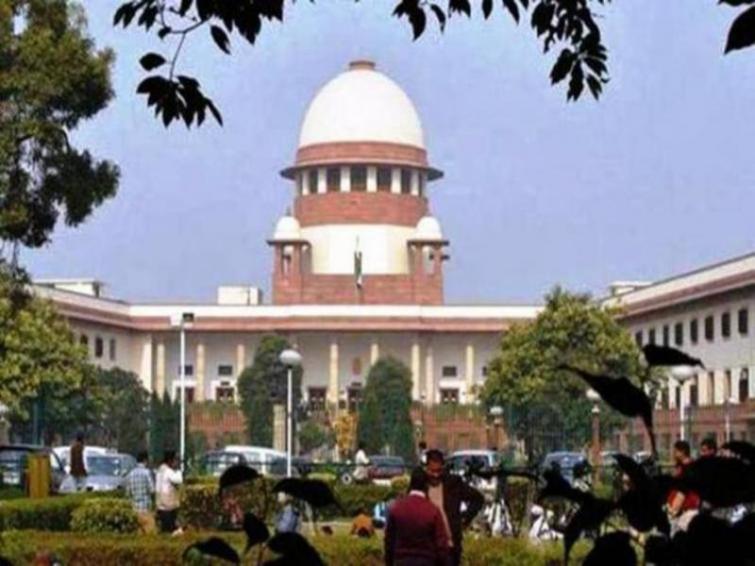Bhopal Gas tragedy: Supreme Court dismisses govt's curative petition demanding additional compensation for victims

New Delhi/UNI: The Supreme Court in its judgement on Tuesday dismissed a curative petition filed by the Centre demanding an additional compensation of more than Rs 7,000 Crore from Union Carbide Corporation (UCC) for the victims of 1984 Bhopal Gas Tragedy.
"The question of compensation can't be raked up three decades after the settlement," the bench of the five-judge Constitution bench on Tuesday said in its verdict.
The plea of the Union of India (UOI) is not maintainable in law and also lacked merits on the facts of this case, the Supreme Court said, in its judgement on Tuesday.
A five-judge constitution bench of the Supreme Court, headed by Justice Sanjay Kishan Kaul and also comprising Justices Sanjiv Khanna, Abhay S Oka, Vikram Nath and JK Maheshwari, pronounced the verdict.
The Supreme Court in its verdict also noted that the responsibility was on the Union of India to make good the deficiency in the compensation.
The failure to take insurance policies is gross negligence on the part of the Union. It is UCC's allegation that Union and State did not detoxify the environment.
The Apex Court said that the Centre has itself earlier stated that the amount paid by UCC was sufficient to settle all the claims of the Bhopal gas tragedy victims and there was no merit in Centre's plea as Rs 50 crore of the amount still remains unutilised and it can be utilized for the same victims in this present case.
"A sum of Rs 50 crores lying with the RBI (Reserve Bank of India) shall be utilized by the Union of India to satisfy pending claims for the Bhopal gas tragedy victims of 1984," the Supreme Court said, in its verdict.
The government sought a re-examination of the apex court's February 14, 1989 judgment which had fixed compensation at USD 470 million, contending that the 1989 settlement was seriously impaired.
The contention of the Central government was that the compensation, determined in 1989, was arrived at on the basis of assumptions of truth unrelated to realities.
The Bhopal gas tragedy, touted as the world's worst industrial disaster, had claimed the lives of several thousand people after a deadly gas leaked from the Union Carbide India Limited pesticide plant on the intervening night of December 2 and 3, 1984.
The tragedy unfolded in Bhopal, Madhya Pradesh, when the highly dangerous and toxic gas, methyl isocyanate (MIC), escaped from the Union Carbide India Limited (UCIL) and resulted in the death of 5,295 human beings, injuries to almost 5,68,292 persons besides loss of livestock and loss of property of almost 5,478 persons.




